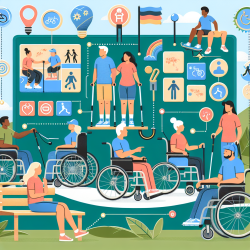Introduction
As Speech Language Pathologists (SLPs) working in schools, ensuring the safety of your students during therapy sessions is of paramount importance. With the rise of online therapy, also known as teletherapy, new challenges and considerations have emerged. This blog aims to inform and guide SLPs on maintaining safety in the virtual environment, ensuring that students receive effective and secure therapy services.
Understanding the Importance of Safety in Online Therapy
Online therapy offers flexibility and accessibility, especially in situations where in-person sessions may not be feasible. However, it also presents unique challenges related to privacy, data security, and student engagement. As professionals, it is crucial to navigate these challenges with diligence and care.
Key Safety Considerations for SLPs
- Privacy and Confidentiality: Ensure that all online platforms used for therapy sessions comply with privacy regulations such as HIPAA. Secure communication channels and data encryption are essential to protect student information.
- Secure Environment: Conduct sessions in a private and secure environment to minimize distractions and ensure that the student's focus remains on therapy. This also helps in maintaining confidentiality.
- Parental Involvement: Encourage parental involvement and ensure that parents or guardians are aware of the online therapy process. This not only helps in creating a supportive environment but also adds an extra layer of security.
- Technology Checks: Regularly check and update the technology used for online therapy sessions. Ensure that both hardware and software are functioning properly to prevent any disruptions during sessions.
Creating a Safe and Engaging Online Therapy Experience
To maximize the benefits of online therapy, SLPs should focus on creating a safe and engaging environment for their students. Here are some strategies:
- Interactive Tools: Utilize interactive tools and resources to keep students engaged. This can include digital games, visual aids, and interactive exercises tailored to the student's needs.
- Consistent Communication: Maintain open lines of communication with students and their families. Regular updates and feedback can help in building trust and ensuring that everyone is on the same page.
- Professional Development: Stay informed about the latest trends and best practices in online therapy. Attending webinars, conferences, and networking with other professionals can provide valuable insights and enhance your skills.
Conclusion
As the landscape of therapy continues to evolve, Speech Language Pathologists must adapt to ensure the safety and effectiveness of their services. By prioritizing privacy, security, and engagement, SLPs can provide high-quality online therapy that meets the needs of their students. TinyEYE is committed to supporting SLPs in this journey by offering reliable online therapy solutions that prioritize safety and efficacy.










